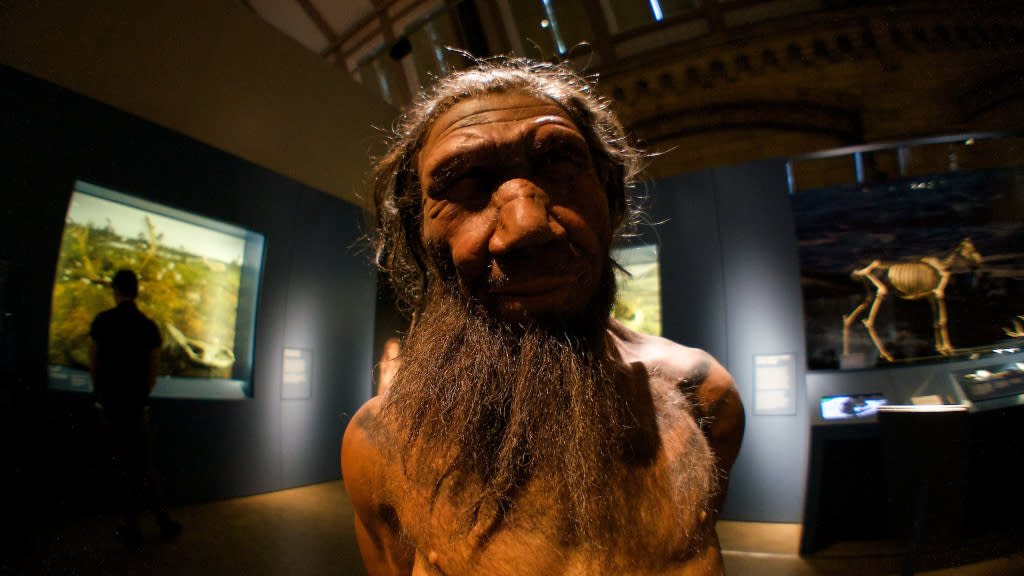New study reveals why Europeans have less Neanderthal DNA than East Asians

[Source]
A new study is shedding light on why Europeans have less Neanderthal DNA than East Asians — even when Neanderthal remains are typically found in Europe.
What researchers found: The study, published in the journal Science Advances, found that it all boils down to migration. Approximately 5,000 to 10,000 years ago, early farmers from Anatolia — now Turkey’s western peninsula — and the Aegean, who had less Neanderthal ancestry, began to interbreed with existing hunter-gatherers in Europe, resulting in a “dilution” of Neanderthal DNA in European genomes.
Neanderthal DNA was slightly higher in Europe prior to the migration. Today, it is 8% to 24% higher in East Asia, the study noted.
What they studied: Researchers at the University of Geneva analyzed 4,464 Homo sapiens genomes spanning 40,000 years to the present to investigate the proportion of Neanderthal DNA in relation to their geographic origins and age. They had 1,517 samples from Europe and 1,108 from Asia.
Trending on NextShark: Growing makeup trend transforms Asian faces to appear 'mixed race'
“Our study is mainly focused on European populations since we are obviously dependent on the discovery of bones and the state of conservation of DNA. It turns out that archaeological excavations have been much more numerous in Europe, which greatly facilitates the study of the genomes of European populations,’’ said co-first author Claudio Quilodrán, senior research and teaching assistant in the Department of Genetics and Evolution at the UNIGE Faculty of Science.
What’s next: The study underscores the possibility of tracing the history of hybridized species through genomic analysis and archeological data. There is more to be known about Neanderthal DNA, which has also been discovered in African populations and may play a small role in the progression of COVID-19, according to a 2020 study.
“We are beginning to have enough data to describe more and more precisely the percentage of DNA of Neanderthal origin in the genome of Sapiens at certain periods of prehistory. Our work can therefore serve as a reference for future studies to more easily detect genetic profiles that deviate from the average and might therefore disclose an advantageous or disadvantageous effect,’’ said last author Mathias Currat.
Trending on NextShark: Watch: Korean mom responds to son asking if he could marry a man
More on NextShark:
Filipina Bianca Bustamante makes history as 1st female driver signed by McLaren
Watch: Bali monkey negotiates for food in exchange for woman's stolen iPhone
'Wheel of Time' star Daniel Henney marries fellow actor, model Ru Kumagai


